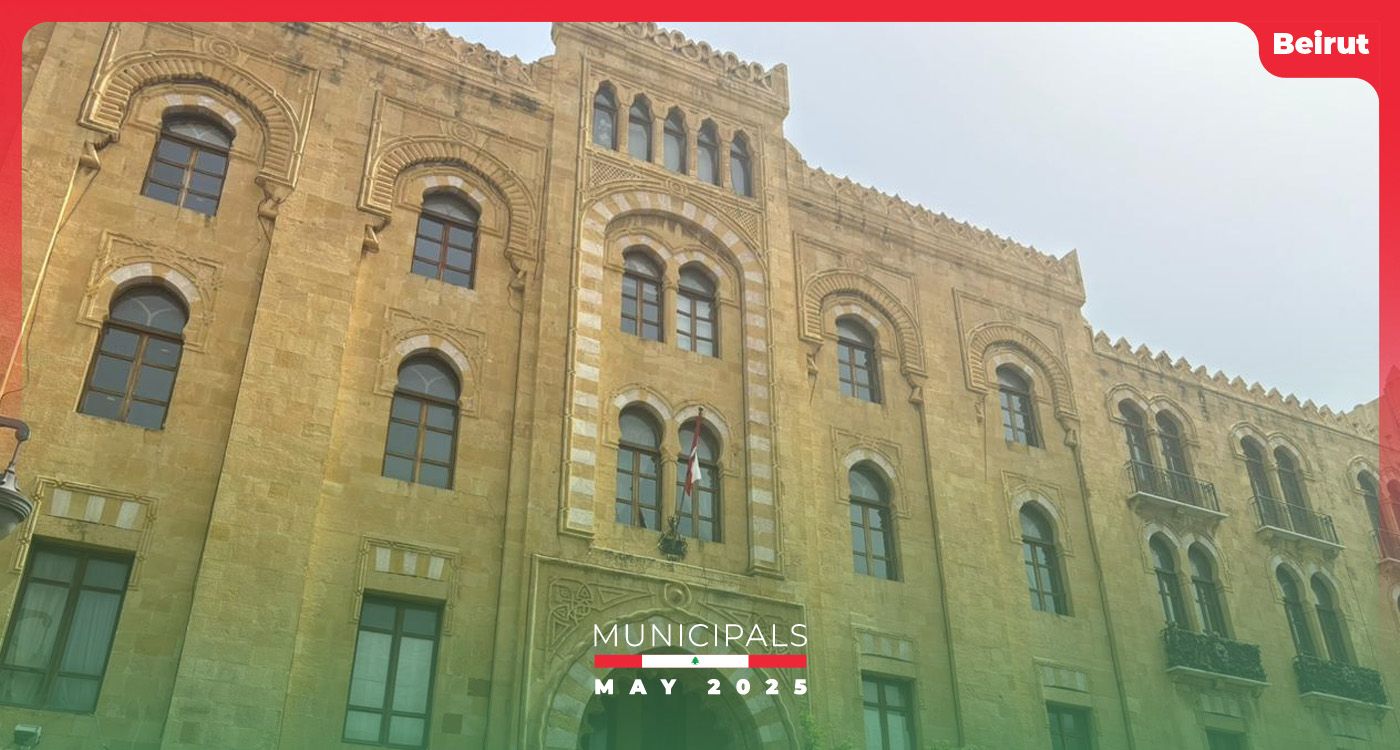
On the eve of municipal elections, residents of the Lebanese capital voiced their anger over mounting insecurity, crumbling infrastructure and pervasive filth. Their testimonies revealed the depth of their frustration.
Whether they live in Gemmayzeh, Geitawi, Ashrafieh (Beirut 1) or Hamra, Mazraa, Verdun or Mar Elias (Beirut 2), Beirutis share the same demands – mainly security – which will weigh heavily on the shoulders of the incoming municipal council.
The residents we spoke with painted a grim picture of the municipality’s performance, particularly since the onset of the 2019 crisis.
Some even look back wistfully to the era of late Prime Minister Rafic Hariri, who was assassinated. Amer, a resident of Mazraa, recalled, “Beirut was a good place to live back then.” He conceded bitterly that, despite Syrian military occupation, the capital was vibrant. “At least the streets were clean.”
Restoring the State’s Prestige and Security
“My daughter is afraid to go outside – even in broad daylight – because of robberies,” Amer explained. He has no faith in the upcoming vote. “They’re all thieves! The only thing they know how to do is repave roads a week before elections,” he said, exasperated.
A bookstore owner in Hamra expressed a similar concern about “growing insecurity.” “Before I count the day’s takings, I triple-lock the shop door – just in case.”
In Ashrafieh, Zeina said she simply wanted to “walk down the street safely at night with my son.”
Concerns about safety emerged across all neighborhoods. Some citizens are calling on the new council to enforce “close cooperation between the gendarmerie and the municipal police, with daily patrols to reassure residents.” Others advocate for surveillance cameras to catch offenders.
Restoring a Worthy Infrastructure
“We want real improvements to road infrastructure,” said two women from Mar Elias, interviewed at a shopping center. Hoda explained that repairing her car cost her a small fortune “because of a pothole the municipality never fixed.” “My tire got stuck in a hole, and there was no proper street lighting,” she said.
In Gemmayzeh, where roads resemble a rodeo track since the Beirut port blast of August 4, 2020, residents voiced the same frustrations.
“It took a personal intervention from MP Nadim Gemayel for the municipality to finally send someone to complete drainage works that had been left unfinished for over a month,” commented Khalil, a florist in Geitawi. “Every day, someone trips on that broken sidewalk,” added a woman in her sixties, shopping for flowers.
As for Abla, she called on the municipality to “ease traffic congestion,” especially on the key routes leading in and out of Beirut, which have become unbearable.
Other widespread complaints include a lack of parking, virtually nonexistent traffic signals and rampant traffic violations – particularly by motorcyclists. Residents are urging the newly elected officials to act.
Breaking point: Enough Beggars and Displaced People on the Streets
Karim lamented that he’s never seen Beirut so filthy. “Garbage has only been picked up sporadically since 2020.” In his Verdun building, residents pool money to ensure daily trash collection. Still, he asked, “What guarantees that a new municipal council will change anything?”
As for Zeina, she just wants to live in a normal city – “a clean one, with proper street lighting.” She added, frustrated, “It’s not much to ask, considering all the municipal taxes we pay with nothing in return.”
“Wherever I go in the capital, it’s overrun by beggars and Syrian displaced people. It’s become unbearable,” said Samer. “I’m not a chauvinist, but still…” he added bitterly.
Some residents even accused the Darak (gendarmerie) of “giving in to fear and turning a blind eye,” as undocumented displaced people roam the streets at night.
Urgent Measures Needed
The next Beirut Municipal Council will face enormous challenges. Many are demanding “an urgent and comprehensive development plan” to be implemented within the first few weeks of the new term.
Top priorities include infrastructure rehabilitation, sidewalk and streetlight upgrades – especially in long-neglected areas – road resurfacing, pothole repairs and better regulation of motorcycle traffic.
Residents also insist that public services must be worthy of the taxes citizens pay.
One thing is clear: people are fed up with empty promises. They now request concrete, visible and lasting results. On May 18, Beirutis will head to the polls – but there’s no guarantee that the new council will truly meet their expectations.




Comments